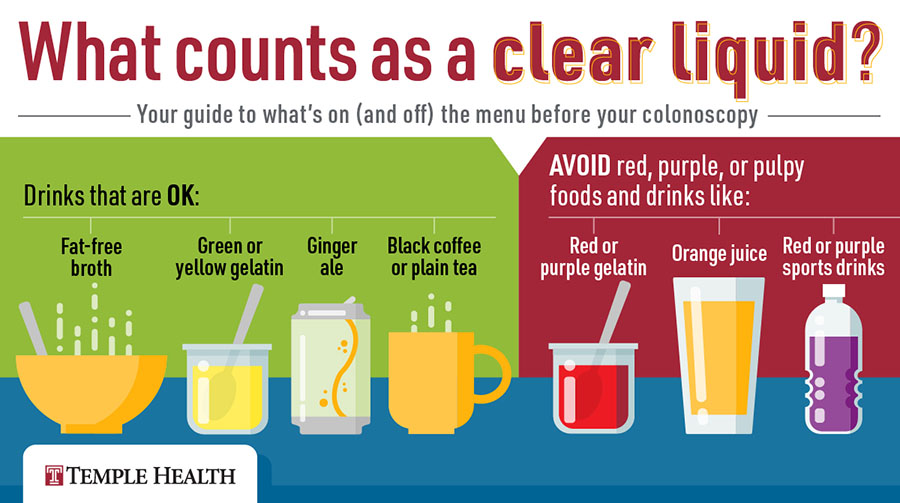The prior recommendation was to start screening at 50. It was lowered because studies show that rates of colorectal cancer among people younger than 50 are on the rise.
When I discuss colonoscopies with patients, there are often many questions about the prep involved. This is very understandable. As the prep is a vital part of a successful colonoscopy, understanding these steps is important for patients.
How Colonoscopy Prep Works
During a colonoscopy, your gastroenterologist uses a scope — a long, thin tube with a small camera attached to it — to look inside your rectum and colon. You’re sedated during the procedure, so you won’t be awake or feel discomfort during the colonoscopy.
The scope allows the doctor to check for polyps and colon cancer. Polyps are growths in the colon that may become cancerous if not removed. Finding and removing polyps is key to preventing colorectal cancer.
The scope needs a clear view so your doctor can spot any growths. Before having a colonoscopy, you need to flush out your bowel so that little to no stool remains inside the colon.
Your doctor will provide specific instructions on how to cleanse your bowel and individualize instructions for you if needed. This usually involves a couple steps:
1. Follow a clear liquid diet the day before your colonoscopy.
What you can drink or eat:
- Black coffee
- Plain tea
- Ginger ale
- Water
- Clear fruit juice
- Clear broth
- Clear gelatin
What to avoid:
- Orange juice
- Red and purple gelatin
- Sports drinks
Remember: following this diet is important for an effective prep.

2. Take a laxative prep.
Your gastroenterologist will give you instructions to explain the prep recommended for you. Be sure to follow them exactly as prescribed. If your doctor cannot see your colon clearly, you might have to repeat the colonoscopy sooner than would be recommended for a clean colon.
Laxatives empty your bowel of stool to allow for clear visualization of the colon. These laxatives are typically in liquid form, which you will drink the day before the colonoscopy. Keep drinking plenty of fluids along with your laxative prep to stay hydrated.
If you have any questions or aren’t sure about something, you can always call your doctor’s office.
After the Procedure
Once you’ve finished the prep, the hardest part is over! What’s left for you to do is arrange for someone to take you to and from your procedure. Since you may feel tired from the anesthesia, you won’t be able to drive for 24 hours.
By the next day, you should be back to feeling like yourself. And you should be able to return to your regular activities.
Your doctor’s office will notify you of your test results.
Schedule Your Colonoscopy Today
If you’re at the recommended age for colorectal cancer screening, it’s important to get screened soon.
Request an appointment or call 800-TEMPLE-MED (800-836-7536).
Helpful Resources
Looking for more information?
